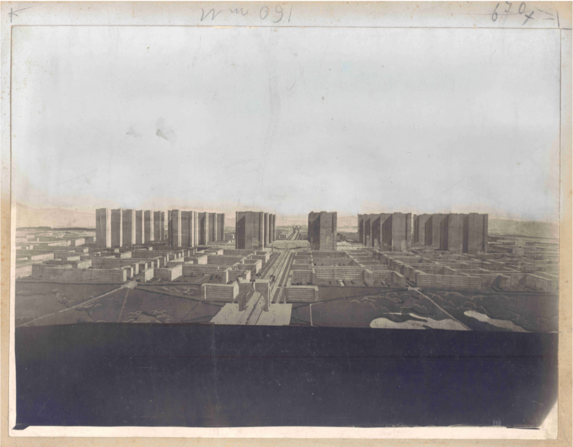Towards the Smart City: Digital Maps as Urban Infrastructure
Antoine Picon

Digital urban maps are everywhere. They are not limited, far from it, to professional geographic information systems used by cartographers and planners. They pop up on individual computer and smartphone screens and, particularly punctuate city life. Digital mapping amounts to a true revolution—one that goes hand in hand with the far more generalized shift involving the advent of a new city based on combinations of atoms of matter and bits of information, on the pairing of places and websites, a city often characterized as "smart". In order to study more in depth this revolution and its contribution to the rise of the smart city, this lecture will propose an interpretation of digital urban maps as infrastructure.
Antoine Picon is the G. Ware Travelstead Professor of the History of Architecture and Technology and Co-Director of Doctoral Programs (PhD & DDes) at Harvard University's Graduate School of Design. He teaches courses in the history and theory of architecture and technology. Trained as an engineer, architect, and historian, Picon works on the history of architectural and urban technologies from the eighteenth century to the present. His French Architects and Engineers in the Age of Enlightenment (1988; English translation, 1992) is a synthetic study of the disciplinary "deep structures" of architecture, garden design, and engineering in the eighteenth century, and their transformations as new issues of territorial management and infrastructure-systems planning were confronted. Whereas Claude Perrault (1613-1688) ou la Curiosité d'un classique (1988) traces the origin of these changes at the end of the seventeenth century, L'Invention de l’Ingénieur Moderne, L'Ecole des Ponts et Chaussées 1747-1851 (1992) envisages their full development from the mid-eighteenth century to the 1850s. Picon has also worked on the relations between society, technology and utopia. This is in particular the theme of Les Saint-Simoniens: Raison, Imaginaire, et Utopie (2002), a detailed study of the Saint-Simonian movement that played a seminal role in the emergence of industrial modernity. Picon’s most recent book,Digital Culture in Architecture: An Introduction for the Design Profession (2010) offers a comprehensive overview and discussion of the changes brought by the computer to the theory and practice of architecture.Picon has received a number of awards for his writings, including the Médaille de la Ville de Paris and twice the Prix du Livre d'Architecture de la Ville de Briey, a well as the Georges Sarton Medal of the University of Gand. In 2010, he was elected a member of the French Académie des Technologies. Picon received engineering degrees from the Ecole Polytechnique and from the Ecole Nationale des Ponts et Chaussees, an architecture degree from the Ecole d'Architecture de Paris-Villemin, and a doctorate in history from the Ecole des Hautes Etudes en Sciences Sociales.